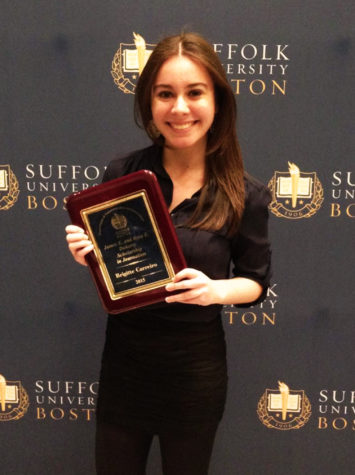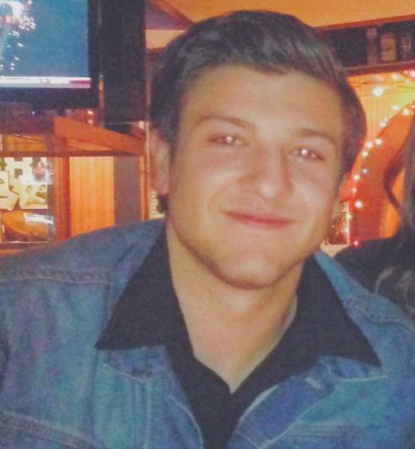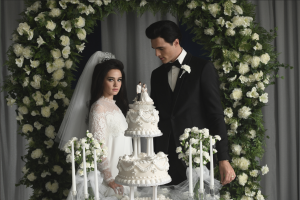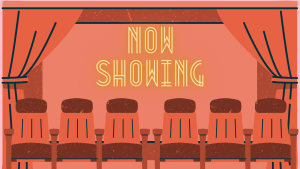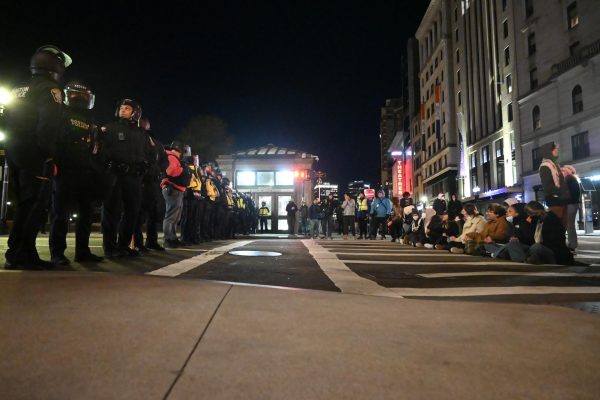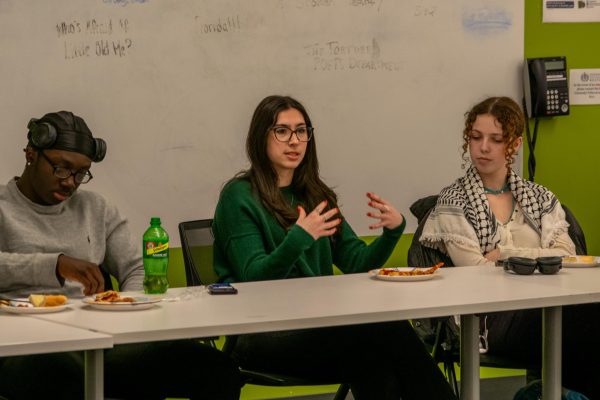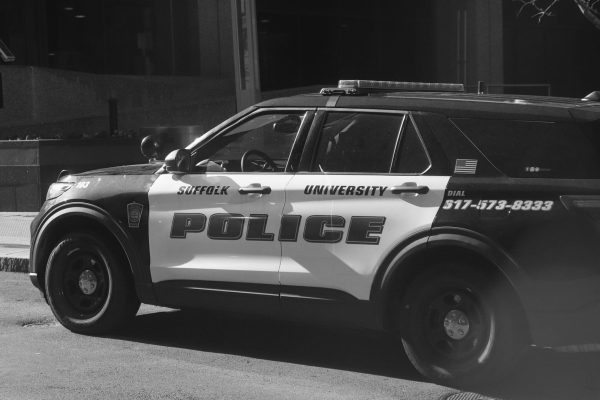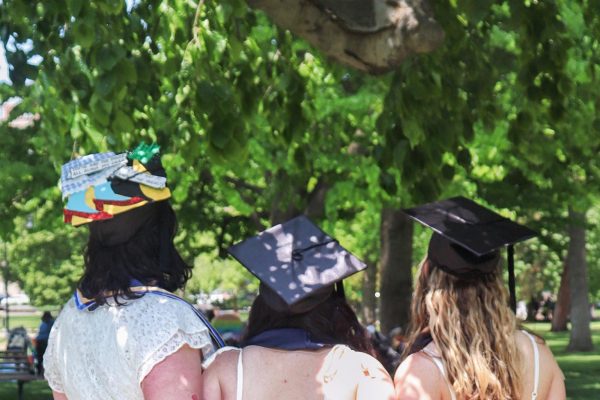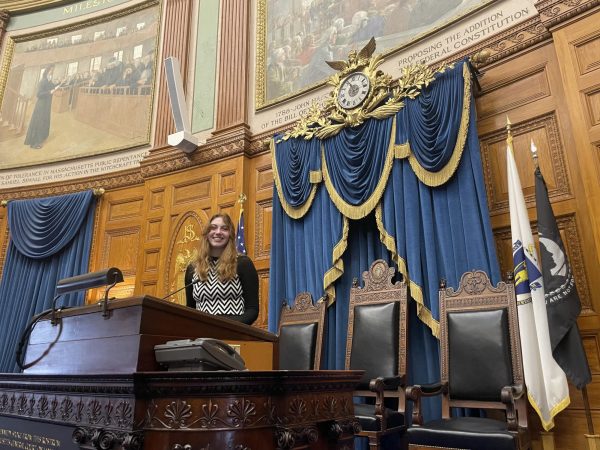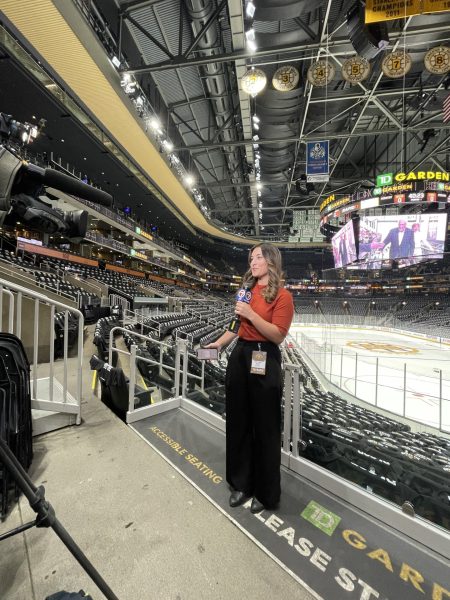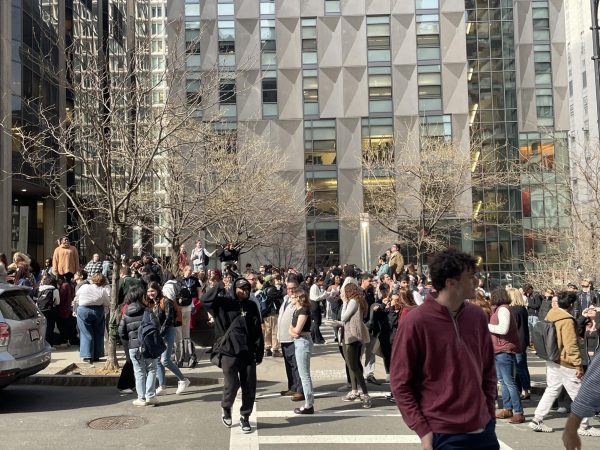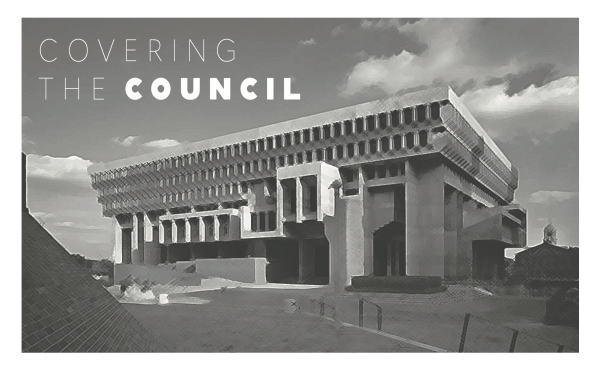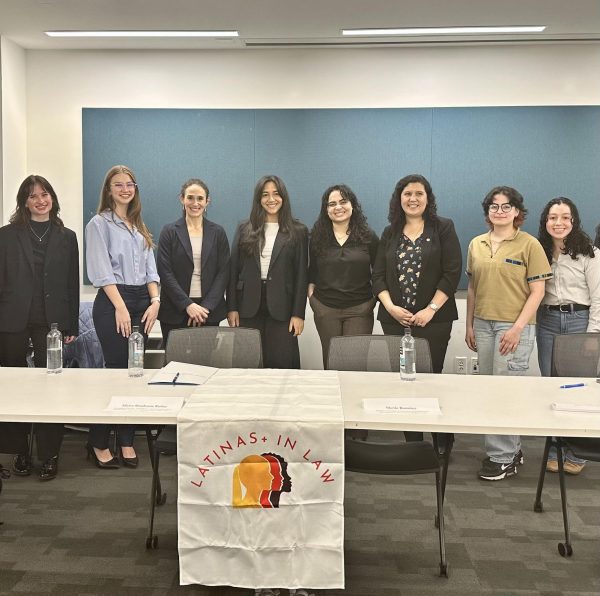University’s reputation on the rocks
McKenna, board not only ones affected by turmoil
February 10, 2016
The highly publicized feud between President Margaret McKenna and Suffolk’s Board of Trustees calls into question how the university’s reputation and branding will hold up amid political chaos.
The media hailstorm sharply criticized the school’s governance while examining the presidential drama and blatant student dissent that followed. As relationships between the Board of Trustees
and the rest of the university became frayed, shockwaves affected the Suffolk community and beyond.
By the end of the week, current students were feeling the pressure of how these recent events may potentially shape their future careers.
“I definitely think that it tears the public image down a little bit,” said Lane Sutton, a Suffolk freshman and marketing major. “I know some students are interested in transferring. They are worried about getting jobs and having a degree at Suffolk,” said Sutton. “If they go out into the working world and try to get a job, especially in Boston, people may know of everything that happened and question it.”
In an interview with the Journal on Tuesday, sophomore marketing major Laura Malis shared similar sentiments.
“In regards to the current media buzz, I don’t think that the Board should have disputed this issue so publicly. Doing so has repercussions and negatively affects the reputation of Suffolk University,” she said.
While Suffolk’s image is subject to this rocky period, students shed light on a preexisting skewed condition of the university’s image.
Sophomore Paul Johnson, a physics major and president of the Society of Physics Students, said that Suffolk’s historic infatuation with how it presents itself has harmful consequences for certain areas of the student body.
“Everything that they try to get out is politics and law,” he said. “What we would like to see is a bit of a changed image for Suffolk, and of course we’re biased because we’re physics majors, but what we all want as young adults — maybe because we’re in this idealist moment — is to change the world.”
According to Johnson, there have been several meetings involving science department heads to discuss the discontinuation of various programs at Suffolk, something that sophomore and vice president of the SPS Allen Alfadhel sees as an unfit way to represent the university.
“It would be more beneficial for the school to advertise Suffolk as a science school so we get more students in these departments,” Alfadhel said.
Johnson echoed these sentiments. “Rather than closing down the electrical engineering department, you advertise and recruit for more engineers,” he said.
Ultimately, to Johnson, the recent changes to Suffolk are potentially adding more tension to what is seen by him as an unsettled university at a pivotal point in time.
According to Interim Vice President of Enrollment Planning and Management Michael Crowley, potential new students are now receiving their acceptance letters, and whether recent disputes have had an effect on potential students’ decisions is in limbo.
While some may believe the choice to attend Suffolk in the fall could be impacted by the Board and McKenna’s very public display of dissonance and vulnerability, Crowley, however, believes that the impressive collaboration of students, more than the possibility of a detrimental public image, is what will bring students to Suffolk.
“I think that we have something going on at this point where there is a lot of disagreement in the press. Does it influence it on the edges? Somewhat, probably, but is it the driver? It’s not,” he said in an interview with the Journal.
“I think we’re seeing a really strongly-knit community right now, and that’s the excitement that we want to show. There’s an awful lot of pride in Suffolk being demonstrated,” he said.
Micky Lee, associate professor in the communications and journalism department, agreed that despite the barrage of media attention, the impassioned determination exemplified in the student body’s ability to band together and make their collective voice heard is impressive.
“Both good things and bad things happened, but it was really the students that stood out,” said Lee. “All of the problems have been hidden under the cover for so long. But this time it played out in the public, so the students were more aware.”
With fingers pointing toward the Board of Trustees, members of Suffolk are also looking to local media for accountability for the public desecration of Suffolk. The university’s campus was crawling with Boston journalists following the ongoing saga, hungry for any information with no regard for the university’s well-being.
“The Boston Herald just ran a story according to unconfirmed sources. This calls into question the legitimacy of the Boston Herald more than Suffolk University,” said Lee. “People were not complaining about Suffolk not teaching students. What people were looking at is the governance of the school.”
Madeline Garcia, a junior public relations major, saw the effect of the press on third parties firsthand when she received a distraught email from her father after the news became clogged with Boston Globe stories about the situation, proving that these university issues are not exclusive to those directly on campus.
“I could care less about the fighting other than if, at some point in the future, it could potentially have a negative effect on the university’s accreditation,” her father wrote. “That won’t have any immediate consequences other than it could lessen the value of a degree from the university if it loses its accreditation.”
Garcia agreed and said she recognized the impact the frenzy may have on her future.
“We pay a lot of money for this school, and he doesn’t want my degree to have less credit because of this whole thing,” she said.


